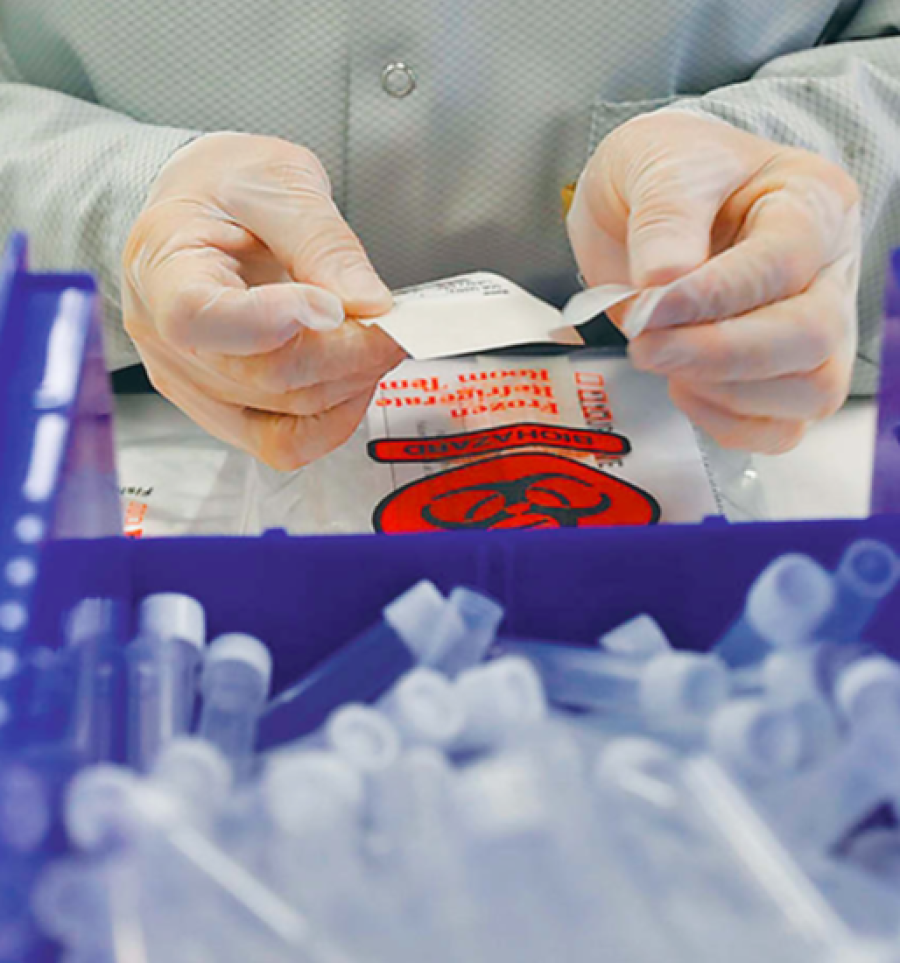Health
Three recovered patients test positive for Covid-19 once again, raising alarm
Doctors, however, say that it is unlikely the patients were reinfected or are even able to spread the coronavirus.
Arjun Poudel
Three patients who were discharged after they tested negative for Covid-19 on polymerase chain reaction tests on April 23 and 26 have tested positive during follow-up tests, raising concerns among members of the public as well as public health experts.
The patients—a 58-year-old man from the Pepsicola-based Sun City Apartments, a 19-year-old man from Rautahat, and a 42-year-old Indian national—had been cleared of the coronavirus after they initially tested negative.
"The results of the follow-up tests came positive. All three have been placed in isolation and are under observation,” said Dr Bikash Devkota, spokesperson for the Health Ministry.
According to Dr Madan Upadhyay, medical superintendent at Narayani Hospital, patients have retested positive in other parts of the world as well, including South Korea, Japan, Australia and China.
“We are not the first country to report such an incident,” he said.
Doctors, however, ruled out reinfection and said that there is no need to panic.
"The test can pick the remnants of the virus and give out positive results,” Dr Anup Bastola, spokesperson of the Sukraraj Tropical and Infectious Disease Hospital in Teku, told the Post. “The polymerase chain reaction method does not tell us whether the genetic material it has detected is from the live virus or dead virus. The test could have picked up fragments of the dead virus.”
According to Bastola, to ascertain whether the virus is dead or alive, a viral culture needs to be performed, but the Teku Hospital does not have the technology to perform such a culture.
For a culture, a virus sample needs to be placed in a petri dish under ideal conditions and see if it is capable of growing.
“If it grows then it means the virus is alive,” said Bastola.
Nepal so far has reported 99 cases of Covid-19; 22 patients have been discharged after recovering.
But with the three recovered men testing positive once again, there are concerns if they can go on to infect others.
"Chances of spreading the virus from the recovered patients are almost nil, as they only have non-infectious remnants in their body,” said Baskota. “There is no evidence that recovered patients have passed the virus to anyone else."
The authorities, however, have, as a precautionary measure, placed all three patients in isolation.
According to doctors, after some recovered patients tested positive in South Korea, scientists and doctors have been attempting to figure out if the virus can reactivate.
Many experts, however, are of the view that it is unlikely that the coronavirus can go dormant and then reactivate. According to them, what is more likely is that patients' bodies still had some fragments of the virus, which led to them testing positive once again.
A study from China had also found that those who tested positive after recovery did not get sicker and that they were shedding the virus, instead of acquiring a new infection.
Another explanation for retesting positive could have to do with testing, according to experts. Any error with the test could mean a false positive, and a number of reasons could lead to variations in results.
Dr Harischandra Upreti, former director of the National Public Health Laboratory, said that the sensitivity of polymerase chain reaction tests is about 73 percent.
“Sample collection techniques, handling of samples, transportation and several other factors determine the test results,” Upreti told the Post. "So results may vary if the person deployed for sample collection is not qualified or could not extract the samples properly.”
According to Upreti, this leaves authorities with just one option—more and repeated testing.
As of Wednesday, 67,074 Covid-19 tests—14,096 PCR tests and 52,978 rapid diagnostic tests—had been performed in the country, according to the Health Ministry.
Seventeen new Covid-19 cases were reported in Parsa on Wednesday, a day after seven cases in Banke. Patients in Parsa include two babies–a two-month-old boy and a six-month-old girl.
According to Upreti, the time has come to revise the testing protocol, as the virus may not be cleared even if the test report shows a negative result.
“There should be follow-up tests, even after patients are sent home after recovery,” he said.




 9.7°C Kathmandu
9.7°C Kathmandu















